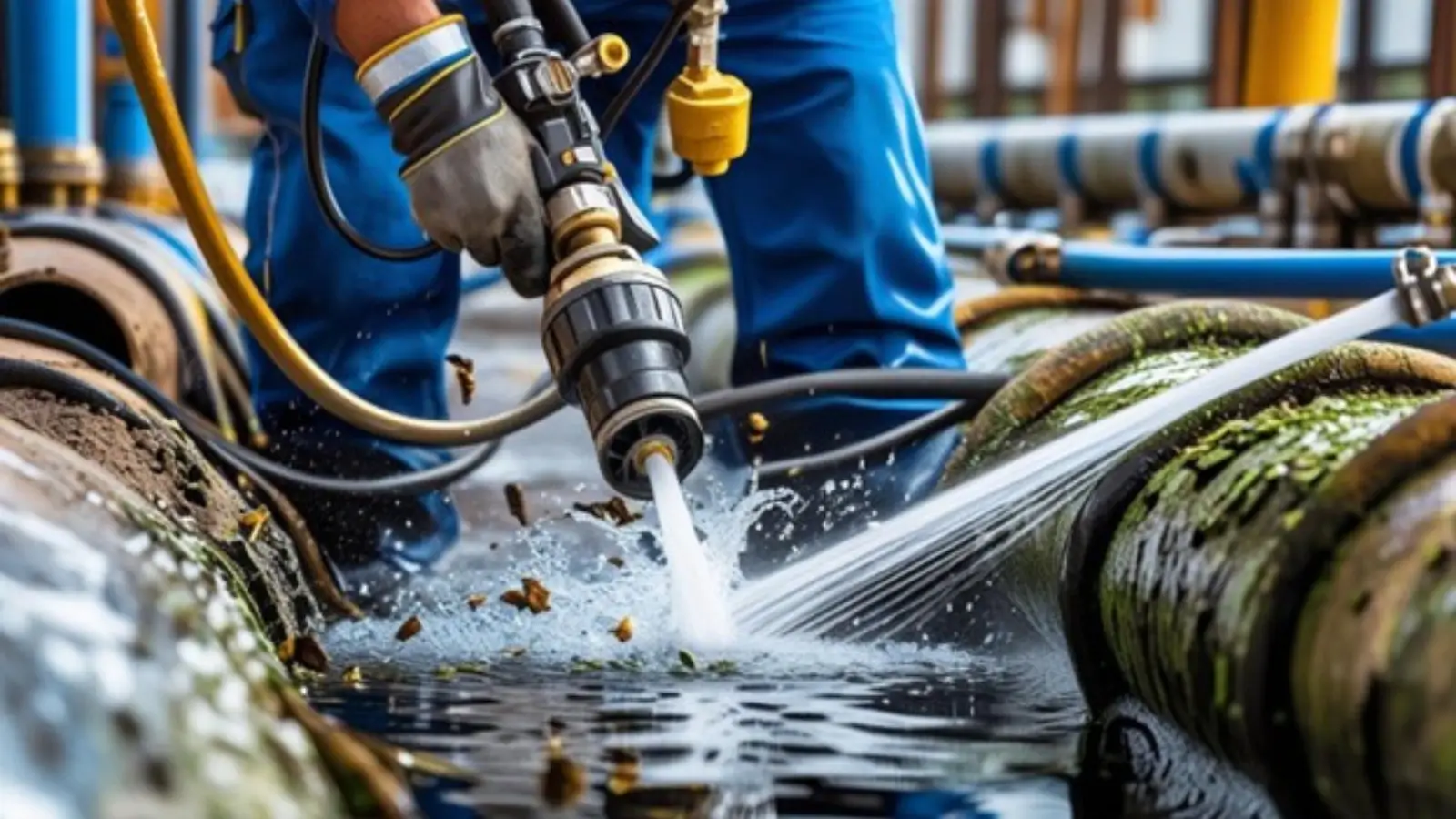


Hydro jetting has become a popular and modern method that uses high pressure water to clear up clogs and restore the flow of plumbing systems. But the question that arises is hydro jetting safe for pipes? Well is it? We are here to answer that and others here. While informing you about the hydro jetting services and how they can restore pipe health.
Hydro jetting uses high-pressure water, between 100 and all the way up to 5,000 psi—to blast away debris from inside drain and sewer lines that clog them up. Restoring them to almost new pipes.
Here is the process simplified:
Therefore, it is considered eco-friendly- since no chemicals are used. However, the primary question remains is hydro jetting safe for pipes across all systems?
Well to answer the question of is hydro jetting safe for old pipes we have to take into account multiple factors. Moreover, older pipes, particularly built before the 1980s, might have:
If pressure uncontrolled, as in high psi it could worsen existing weakness or dislodge compromised joints. Therefore, a well experienced plumber should be hired for the job.
|
Method |
Pros |
Cons |
|
Drain snake |
Fast and inexpensive for small clogs |
Doesn’t remove buildup on pipe walls |
|
Chemical cleaners |
DIY-friendly, easy to use |
Can be harsh, may only dissolve soft clogs, not grease or roots |
|
Pipe replacement |
Fixes damaged pipes long-term |
Expensive, invasive, may require digging |
|
Hydro jetting |
Thorough, eco-friendly, prevents repeat clogs |
Needs professional setup and inspection to avoid risk |
When comparing efficacy and environmental impact, hydro jetting remains a top choice, assuming safety procedures are followed.
Hydro jetting is a powerful, eco-friendly, and highly effective method for clearing tough clogs and maintaining the health of your plumbing system. When performed by experienced professionals, it’s safe for most modern piping and can even be used on older systems, provided a proper inspection is done first.
While there are risks involved, especially with old or damaged pipes, these can be minimized by working with licensed plumbers who understand how to adjust pressure levels, inspect for vulnerabilities, and use the right equipment.
Well yes hydro jetting is safe for modern plumbing systems when performed by experienced professionals. It uses high-pressure water to clear blockages without harsh chemicals. However, it is important to inspect the pipes beforehand to ensure your pipes are able to handle the pressure. When done correctly it won’t harm your plumbing.
Hydro jetting can be safe for old pipes, but it depends on their condition. Older materials like clay or cast iron may be brittle or corroded, so a professional inspection is essential before jetting. If the pipes are too fragile, alternative methods might be safer.
Hydro jetting typically costs between $300 and $900 for residential jobs, depending on the severity of the clog, pipe access, and your location. Emergency services or major blockages can push the price higher, while minor cleanings may be on the lower end.
Generally hydro jetting jobs take on average between 60 to 90 minutes, depending on the intensity and location of the blockage. While some simpler unclog processes can be completed in under an hour. On the other hand if there is severe buildup or long pipes it may take longer.
For most homes, hydro jetting once every 1 to 2 years is ideal for preventive maintenance. However, if you experience frequent clogs or have a commercial kitchen or large household, more frequent cleanings may be necessary to keep pipes flowing efficiently.